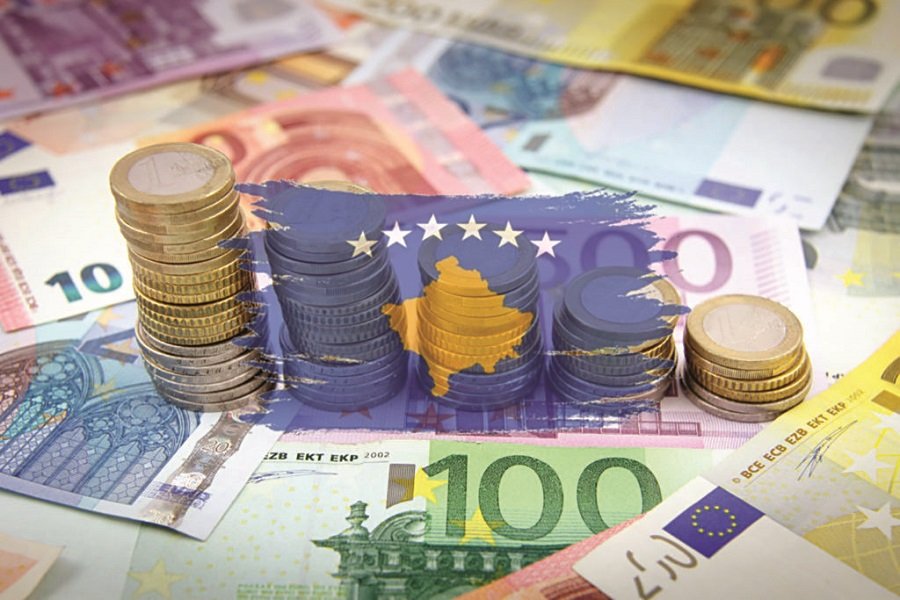
Kosovo faces high unemployment, trade deficit
Kosovo marks its 17th independence anniversary. Since the formation of the state, almost all political parties in the country have governed. Over these years, Kosovo has failed to create economic stability. In addition, since June 2023, the country remains under sanctions by the European Union due to the situation in the north, CE Report quotes Kosova Press.
Although the business community has continuously asked the Government to prioritize economic development and support businesses, the executive did not meet their expectations. Despite the private sector being considered a guarantee of sustainable economic development.
Another challenge for the youngest state in Europe is the high poverty rate and the large number of unemployed people compared to other countries in the region. According to the latest report from the World Bank, only 37% of the working-age population is employed in Kosovo. Kosovo also remains an unattractive destination for foreign investments, especially from large global companies and brands. According to the Central Bank of Kosovo, Foreign Direct Investments from January to September 2024 amounted to 657.3 million euros, which, according to economic experts, shows that the growth rate of investments has slowed down. In the sectoral aspect, real estate activities dominated foreign direct investments.
Economics professor Ilir Hajdini mentioned several achievements over these 17 years of statehood in the economy sector, but also setbacks in this sector. He says that after independence, the country invested billions of euros in road infrastructure, including the construction of two highways: one connecting the country to Albania, "Ibrahim Rugova," and the other, "Arbën Xhaferi," towards Skopje.
Economic expert Safet Gërxhaliu expressed that it is time to follow European and global trends in the economic aspect.
According to the former Minister of Trade and Industry, Ismet Mulaj, after independence, there were structural reforms of interest for Kosovo's businesses, but he states that these were not sufficient. Mulaj emphasizes that the legislation for the economy should be adapted to the new developments in Kosovo.
Kosovo imports most products from neighboring countries, the world, and the European Union. According to the Kosovo Customs, exports of goods are symbolic, and the trade deficit has increased in relation to imports. At the same time, in the last three to four years, imports have also increased. In 2024, Kosovo exported goods worth 889 million euros, while importing 6.38 billion euros, reaching the highest import level since the post-war period.
In 2023, exports amounted to 819 million euros, while imports were 5.878 billion euros. In 2022, exports were 920 million euros, imports were 5.639 billion euros. In 2021, exports were 755 million euros, while imports were 4.684 billion euros. In 2020, the value of exports was 474 million euros, and imports were 3.296 billion euros.
Over these years of independence, the country lagged behind in the construction of railways and the development of public enterprises such as "Trepça," "Infraskosi," and Telecom.
Although a long-awaited achievement for the country occurred on January 1, 2024, with visa liberalization for citizens to move freely in the Schengen area.
Thus, after the declaration of independence, Kosovo has managed to join almost all international financial organizations, such as the World Bank, the International Monetary Fund, and the European Bank for Reconstruction and Development, but not yet the Green Card Bureau, which remains a requirement for the country's membership in the United Nations.
In 2009, Kosovo recorded an economic growth of 5%, while in 2023, this rate was 3.5%, and in 2024, it is expected to be around 4%, which economic experts consider natural and not a result of economic development.
The youngest state in Europe, in 2008, Kosovo had a budget of 1.027 billion euros, and a year after independence, in 2009, the Kosovo Assembly approved a budget of 1.43 billion euros. The budget for 2024 reached 3.3 billion euros, and in 2025, it is expected to be 3.6 billion euros.
Kosovo declared its independence on February 17, 2008, and its statehood has been recognized by over 110 countries worldwide. The most recent country to recognize Kosovo was Israel.
























